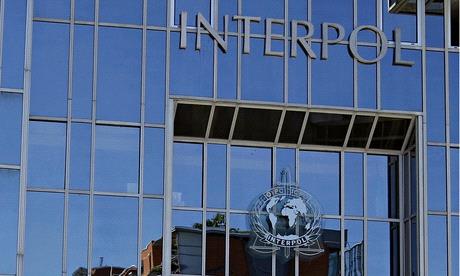Ammon News - The Guardian- An Interpol red notice, seeking the arrest in London of a Jordanian businessman at the centre of a high profile legal dispute involving two senior Saudi princes, has finally been withdrawn after more than two years.
Faisal Almhairat claims that the notice authorising his extradition was issued in pursuit of a business vendetta. The international police agency, based in Lyons, France, has admitted belatedly that it was not "in compliance with Interpol's rules".
Almhairat, 45, has been living a fugitive's life in London, moving from hotel to hotel, because he says he fears that if extradited back to Saudi Arabia he would not receive a fair trial. Withdrawal of the red notice is the latest twist in a complex civil dispute between the Jordanian and Saudi business interests that has thrown up disputed allegations of "money laundering" for Hezbollah in Lebanon and helping smuggle precious stones out of the Democratic Republic of Congo.
Lawyers for the two princes involved in the civil proceedings – Prince Mishal bin Abdulaziz Al Saud, a former defence minister, brother of King Abdullah and chairman of the country's influential allegiance council, and his son Prince Abdulaziz bin Mishal bin Al Saud – have dismissed the claims as fabrications, "scandalous" and "outrageous".
They allege the claims, which erupted over the disputed sale of shares worth £4.3 million, have been made to put pressure on the Saudis through adverse publicity.
Concerns about potential abuses of Interpol red notices, including for personal or political grievances, have been highlighted by the campaign group Fair Trials International, which accuses Interpol of failing to scrutinise requests rigorously enough.
Red notices are the highest level of police alert. Many countries, but not Britain, treat them as provisional arrest warrants. In effect they prevent those named from travelling abroad. Fair Trials has called on Interpol to "refuse or red notices where it has substantial grounds to believe the person is being prosecuted for political reasons".
Speaking for the first time about his two and a half year ordeal, Almhairat told the Guardian: "I have received threats. I didn't hear about the red notice [immediately]. People in the police in Jordan said: 'Leave the country immediately. If you don't go we will send you to Saudi Arabia'. So I came to London."
Speaking at the central London office of Peters and Peters, the lawyers who have handled the criminal aspect of the case against him, Almhairat said: "If I live in a hotel it's safer for me. There's cameras in the corridors and security. I never go to certain areas of London because I still worry about threats. I have been moving between hotels for two and half years now. My friend told me I'm in a big jail; at least it's a nice one.
"I have lost my nationality and my country all because of this red notice. There's no sorry. No apology. I'm a businessman; 25 families depended on me. So [their livelihoods] have been destroyed as well. There should be an investigation for all these red notices. They tell me I was a thief and crook – now this [withdrawal of the red notice] is the truth."
He added: "I have lost everything: my family, my business. They have made me lose everything."
Almhairat has been unable to travel abroad while the red notice was in force for fear of being removed to Saudi Arabia.
Rebecca Meads, a business crime barrister at Peters and Peters, said: "These cases have a draconian impact on people's lives. We have recently seen a few examples of Interpol lifting notices in high-profile cases, but it has some way to go to demonstrate that it is routinely applying rigorous scrutiny to the notices it issues."
In response to his claims that the Interpol red notice was obtained through improper pressure on Saudi police and Interpol, or that threats were made against Faisal Almhairat, lawyers at Irwin Mitchell, who represent the two Saudi princes and their companies, said that "each are denied in their entirety".
Interpol declined to comment on Almhairat's case but a spokesperson said: "Any member country may challenge the validity of a red notice if it believes the notice contravenes Interpol's constitution and rules. The person who is the subject of a red notice may also challenge it.
"If a red notice is found to be in violation of Interpol's constitution and rules, it is deleted from Interpol's systems and all member countries are required under Interpol's rules to do the same at the national level.
"Interpol enables countries to share information about people either under criminal investigation or sought for arrest, but it does not legally bind any member country to take any action. Interpol cannot insist that any member country arrest an individual, nor does it issue international arrest warrants."
The Guardian and Financial Times last year obtained access to the London court documents in the civil dispute between Almhairat and the Saudis after arguing that legal submissions should not be made in secret. The case, according to Mr Justice Morgan, who gave judgment at an interim hearing, has "thrown up a nuclear mushroom cloud" of litigation.
Lawyers at Irwin Mitchell pointed out that the case was still before the courts, which have yet to rule on the "many lurid allegations made by Mr Almhairat". The Saudis have accused Almhairat in legal proceedings of stealing 24 million riyals (£4m) from a company they once jointly owned. He dismisses the allegation as fictitious and has counter-sued the princes and their companies. The civil case is due to come before the courts for trial later this year.
